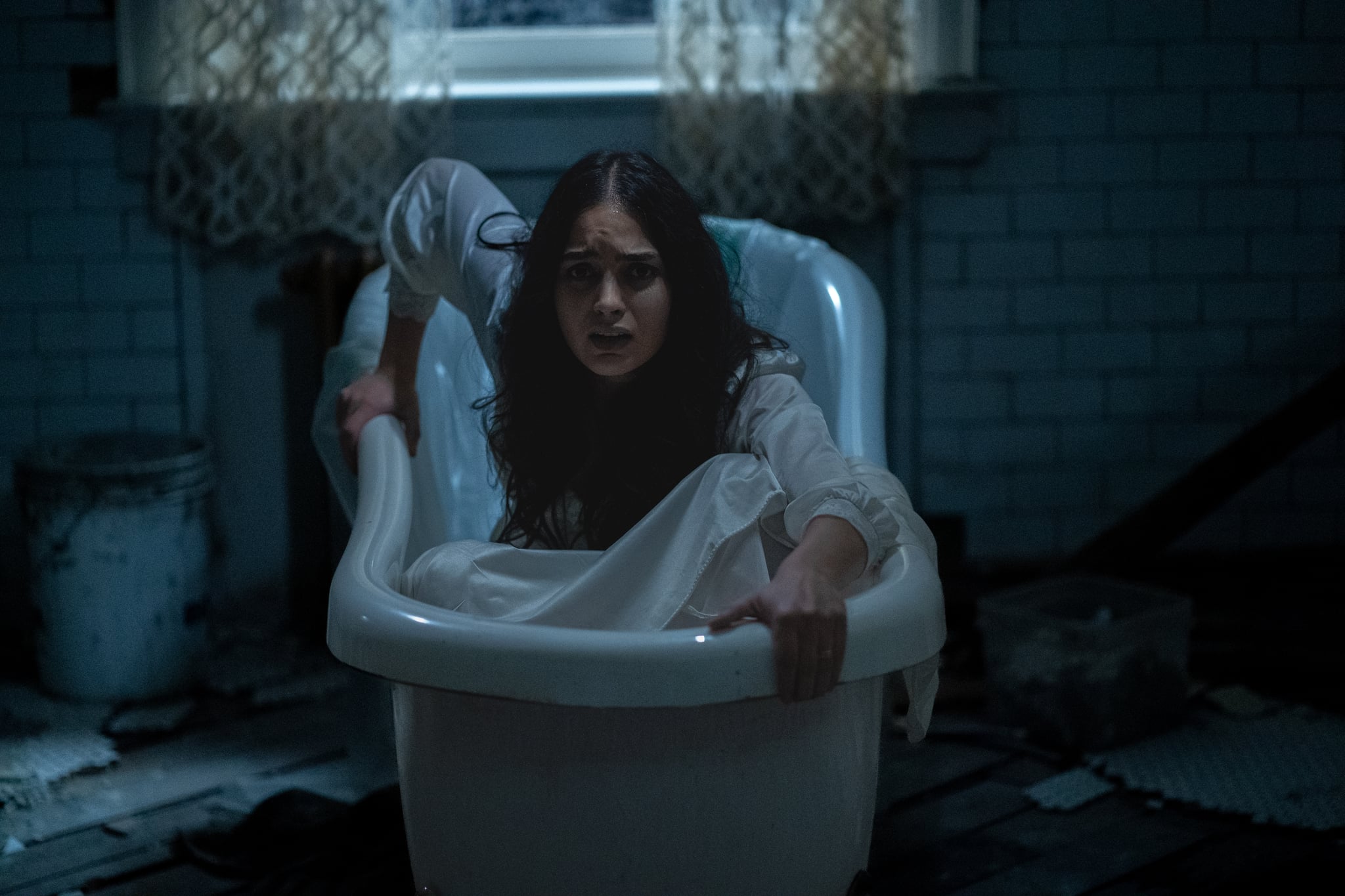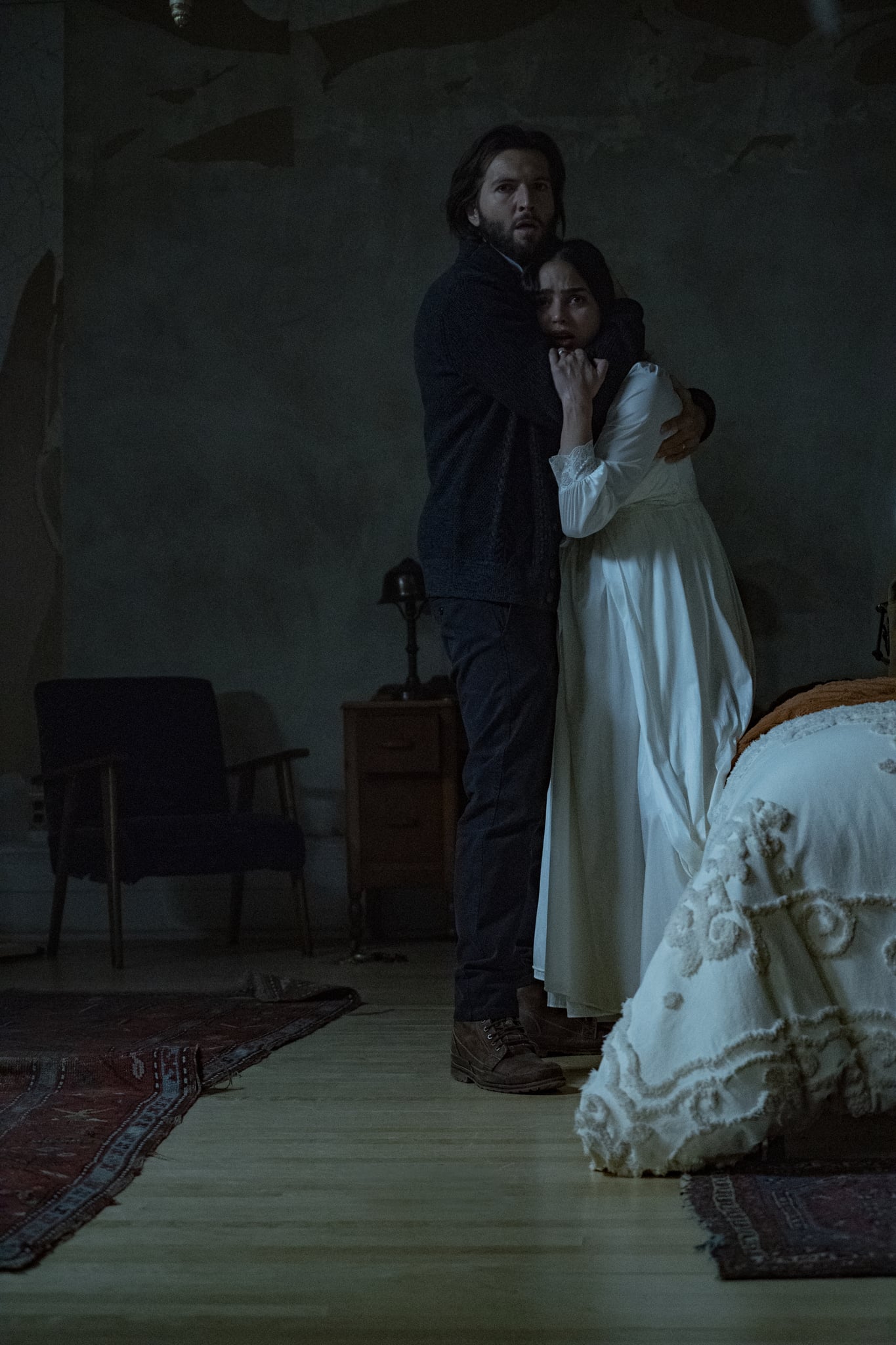Content warning: The following story contains text descriptions of pregnancy loss.
We live in a world that does not believe women when we say we are in pain, whether it is chronic physical pain or psychological distress. The patriarchal powers that be have always rejected us, so much so that it has seeped into our health systems. The problem goes far beyond disbelief: the gap in pain has deadly consequences, and America faces a maternal health care crisis worse than any other developed country.
And while our culture is finally acknowledging this reality, the stigma around these issues is still very real – perhaps most blatant when it comes to pregnancy loss. Our culture still does not openly discuss the grief and severe psychological impacts that miscarriages and stillbirths can have on women. In writer/director Lori Evans Taylor’s new supernatural thriller, “Bed Rest,” out on Tubi Dec. 7, actress Melissa Barrera artfully depicts the horribly haunting effects a traumatic pregnancy loss can have on a mother.
In the film, Barrera plays Julie Rivers, a young woman who once experienced a heartbreaking stillbirth that resulted in a diagnosis of postpartum psychosis and a six-week admission to a mental rehabilitation facility. But after years of suffering, Rivers is pregnant again and moving into a new home with her husband, Daniel. She tries to embrace new beginnings. But then she accidentally slips down a flight of stairs and is ordered to fulfill eight weeks of mandatory bed rest. This restrictive state of being slowly begins to trigger thoughts about her previous pregnancy loss – and deeply worries those around her for her mental health.
For most psychological thrillers, viewers might not know if Julie is actually going through what she says she is going through – including being tormented by her dead son as well as another woman who died by suicide after her child died in an accident. . Are these mystical components real, or are they just real in Julie’s traumatized mind? Barrera confirms it’s both.
“When I read [the script]i was like, this is an important message and it’s also a great way to understand it because [of] its genre,” Barrera told POPSUGAR. “It was very different from any other thriller or horror movie I’ve read. I felt like he had a deeper message – an important message. And that’s what I always look for in projects.”

If you’ve seen Barrera’s more recent projects, you’ve probably noticed a common thread. The actress – whose career has taken off since landing the role of Lyn in Starz’s ‘Vida’ and then her Hollywood role as Vanessa in the film adaptation of Lin-Manuel Miranda’s ‘In the Heights’ – has a knack for developing complex characters. It’s undeniably one of her greatest strengths as an actress and one that makes it easy to connect with everyone she plays.
Her role as Julie is almost reminiscent of her character Chama in the independent film “All the World Is Sleeping” and Liv in the Netflix series “Keep Breathing”, released in August. In all of these projects, the protagonist faces major adversity while struggling to overcome what might seem like a debilitating trauma that is impossible to escape. And yet women always manage to get by in the end.
It’s clear in every role that Barrera has a knack for delving deep into a character’s trauma — almost taking it as his own — and then finding a way to turn it into a believable on-screen triumph. In “Bed Rest,” it’s easy to empathize with Julie’s character and root for her survival and success until the very end. That’s all Barrera. It’s what she does best. In all her films, she gives the impression that the character she plays is really her.
“I’m not an actor who can be like, he’s a completely separate person [from myself]“, she explains. ” I can’t. Because what leads me to a character is always how similar we are first and then all the things that are different – that don’t look like me.”
Barrera continues: “One of the characters in the film – Delmy – says, ‘Women have carried the burden of grief for many years,’ and it’s so true, and we don’t talk about it. It’s taboo, and we’re supposed to just get up and move on, and it’s not easy.” That’s partly why Barrera is “so proud” of the film: “I’m proud of how it turned out, but also because I feel like a lot of women – more women than we want to admit it – have been through something like this.” Indeed, 10-20% of known pregnancies end in miscarriage, and around 1 in 160 births is a stillbirth, which occurs when a baby dies at 28 weeks or after.
In the end, Julie not only survives but finally lets go of the nagging pain of the death of her first child in order to be there for her daughter, born at the very end of the film. It’s a hopeful ending that Barrera felt the viewers deserved.
“Personally, I think there needed to be this kind of happier closure, because we kind of need to be able to breathe at the end.”
“Personally, I think there had to be this kind of happier ending, because we kind of need to be able to breathe at the end,” she says. “Because it was hard to be with her all this time – and women have such a hard time with that that to have her, in the end, triumphant and able to go on with her life and be happy is so much more optimistic. and is the message I wanted for women who have been there and who may be going through this: “She beat that, and that means I can too. I can get my life back.”
At the end of the film, we also learn that the haunted spirits that Julie sees and communicates with are actually present in the house – not just in her head. Her husband, played by Guy Burnet, and her caregiver Delmy, played by Edie Inksetter, are both witnesses to this. Despite the fact that what Julie is going through is also tied to her history of postpartum psychosis, Barrera was grateful to finally have the opportunity to believe her character.

“It’s so relevant in society – women aren’t believed when we say something…I wanted to break that pattern, and I wanted the ending to be very [clear that] she’s been right this whole time, and I wanted the other characters to recognize that.”
“It was really important to me because Delmy and Daniel also doubted her all the time… It’s this recognition of women believers,” she says. “It’s so relevant in society – women aren’t believed when we say something…I wanted to break that pattern, and I wanted the ending to be very [clear that] she’s been right this whole time, and I wanted the other characters to recognize that.”
The film touches on another aspect of not being believed: although there are certain spiritual practices that recognize the connection with the deceased as a reality, this is not the case in Western culture and medicine. And yet Julie’s reality was true.
Barrera believes there is a fine line between someone who has an open channel and the gift of being able to see and communicate with spirits and someone with a mental disorder. “I think the difference for me is the feeling of those encounters. I think [for] a lot of people having spiritual encounters, after someone’s death or having that channel open, it’s healing,” she says. “It’s like you get some kind of closure. And it doesn’t smell bad. I think there’s a feeling of upliftment.”
Barrera, who recently read Laura Lynne Jackson’s “Signs: The Secret Language of the Universe,” believes she had some kind of spiritual encounter with her grandmother after she passed away this summer. She says that when her grandmother was alive, she used to collect souvenirs of frogs with which she decorated her whole house for good luck. “When she died, there was a frog that came to the front door every night. Every night,” Barrera says. “And I’ve never had a frog come to my house. I’ve never seen a frog. All of a sudden there’s a frog on my doormat every night – the same frog comes back. I was like, he There’s no way to ignore It’s clearly my grandma telling me she’s fine She’s telling me she’s looking for me.
“Bed Rest” has a creative way of approaching all of these possibilities. But at the end of the day, it’s really about the horror experienced after a pregnancy loss – how it can haunt you and even break you, but there’s always the possibility of coming out the other side. There is always the possibility of overcoming even the toughest pain to start a new chapter. There is always hope.
Image source: STXFilms





